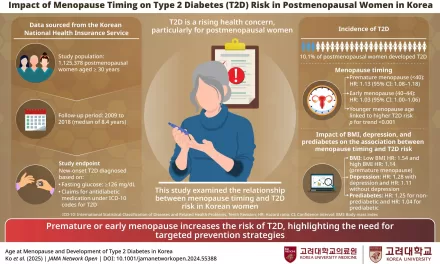When discussing kidney health, the usual culprits often include diabetes, hypertension, and chronic kidney disease. However, a groundbreaking new study has revealed a potential link between asthma, depression, and an increased risk of kidney failure. This research sheds light on how multiple chronic conditions can accelerate the decline of kidney function, offering fresh insights into managing kidney health.
Key Findings of the Study
Published in the Journal of the American Geriatrics Society, the study explored the connections between kidney failure and chronic conditions such as asthma and depression. Researchers found that older adults with multiple chronic conditions experienced a faster decline in kidney function compared to those with fewer health issues.
While cardiometabolic disorders like diabetes and heart disease pose the greatest threat to kidney health, asthma and depression were also identified as contributing factors. “Our findings emphasize the importance of a comprehensive assessment that considers not only the overall chronic disease burden but also the complex interplay between diseases when evaluating the risk of kidney function decline in older adults,” said Giorgi Beridze, one of the study’s authors. He stressed that individuals with high-risk multimorbidity patterns could benefit significantly from closer kidney monitoring, healthier lifestyle changes, and timely medical interventions.
How the Study Was Conducted
Over a span of 15 years, researchers monitored approximately 3,100 elderly participants to assess the effects of different chronic disease combinations on kidney health. Most participants were women with an average age of 74. The study collected detailed medical histories, conducted physical examinations, and regularly measured kidney function using blood tests to calculate estimated glomerular filtration rates (eGFR).
A striking 87% of participants had more than one chronic illness, highlighting the prevalence of complex health challenges among older adults. Researchers identified five distinct patterns of chronic diseases within the group. The participants with cardiometabolic conditions showed the most severe kidney function decline, with their eGFR decreasing nearly three and a half times faster than those in the lowest-risk group.
Implications for Kidney Health Management
This study underscores the necessity of addressing the broader spectrum of health conditions when managing kidney health. The findings suggest that monitoring kidney function should extend beyond traditional risk factors to include chronic conditions like asthma and depression.
“For older adults, understanding how multiple health issues interact is crucial,” Beridze noted. He called for a more tailored approach to healthcare, emphasizing the importance of early detection, integrated treatment plans, and proactive lifestyle interventions for those with high-risk multimorbidity profiles.
Takeaway
This research marks a significant step forward in understanding the intricate connections between chronic illnesses and kidney health. As the global population ages, addressing the combined impact of conditions like asthma, depression, and cardiometabolic diseases could play a vital role in reducing the burden of kidney failure. Through comprehensive care and vigilant monitoring, healthcare providers can better support older adults in maintaining kidney function and overall health.











